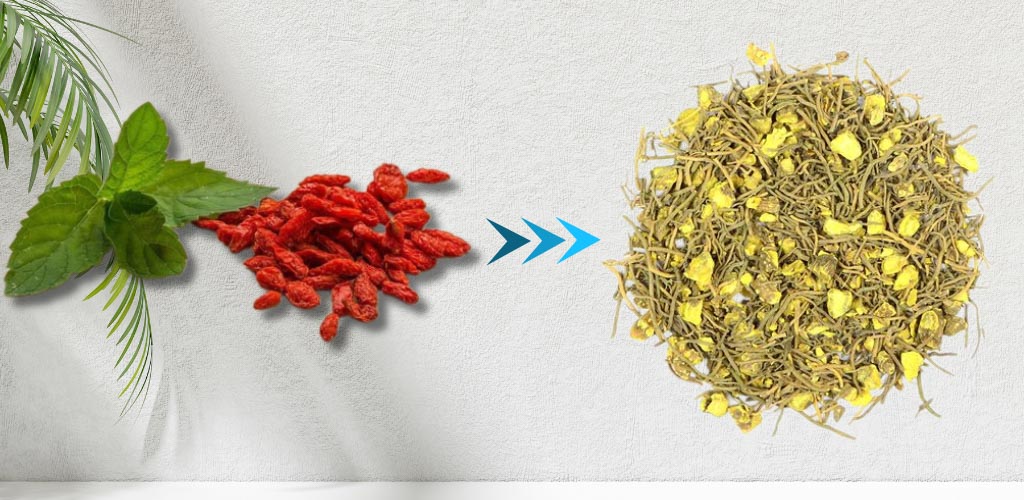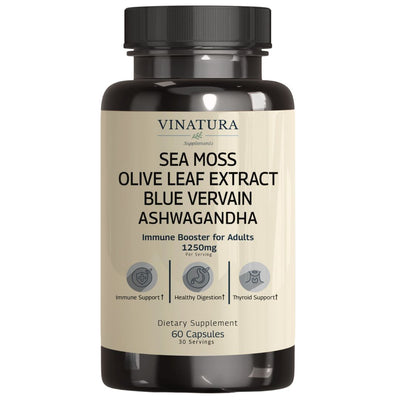
How Much Berberine Is In Goldenseal? Are They The Same?
Berberine, the golden-hued alkaloid abundant in goldenseal, is known for its diverse health-promoting benefits.
With a rich history rooted in traditional medicine, berberine has been studied for its potential impact on various health aspects.
This article delves into how much berberine is in goldenseal root and its effects on human health.
Before exploring the exact answer to the question “How much berberine is in goldenseal?”, some people may wonder What Is Berberine and its benefits for human health.
Before exploring further, please read the disclaimer located at the end of this webpage.
What Is Berberine?

Berberine is a natural alkaloid found in various plants, especially in the Berberidaceae family. Plants such as European barberry (Berberis vulgaris), Indian barberry (Berberis aristata), Oregon grape (Berberis aquifolium), and several others are primary sources of this compound.
Berberine has been used in traditional medicine across different cultures, including Ayurvedic and Chinese medicine, to treat various illnesses.
In the modern era, scientific research has focused on the potential health benefits of berberine, particularly in the treatment and management of conditions such as diabetes and cardiovascular issues.
Studies have indicated that berberine may help control blood sugar by enhancing insulin sensitivity and inhibiting certain enzymes related to glucose metabolism in the body.
Additionally, research has explored its positive effects on weight management and improving cholesterol levels. [1]
Read more: 8 Best Berberine Supplements for Weight Loss
Is Berberine the Same As Goldenseal?
No, berberine and goldenseal are not the same, but they are related because both contain the alkaloid compound berberine.
Berberine is a natural compound found in various plants, and goldenseal (Hydrastis canadensis) is one of the plants that contains berberine.
However, berberine is not exclusive to goldenseal; it is also found in other plants.
While both berberine and goldenseal contain berberine, they may have different concentrations of this compound, and their overall chemical compositions can vary.
How Much Berberine Is In Goldenseal?
Generally, the roots of goldenseal are known to contain a significant amount of berberine. Studies have reported that the berberine content in goldenseal can range from approximately 0.82% to 5.86%.[2]
However, the berberine content in goldenseal can vary depending on several factors, including the region, environmental conditions, and cultivation practices.
What Does Berberine in Goldenseal Do for Your Body?
Kills Bacteria That Cause Diarrhea
Berberine in goldenseal has demonstrated potential antibacterial properties and has been reported to be effective against various bacteria, including those causing diarrhea. [6]
Studies have indicated that berberine can be effective against certain bacterial strains, such as Escherichia coli (E. coli) and Shigella, which are common bacteria responsible for bacterial diarrhea.
Berberine may act by disrupting the bacteria's ability to adhere to the intestinal mucosa, reducing their toxicity, and preventing infection [7]

Prevent Candida Fungus from Growing
Candida fungus is a naturally occurring fungus on our skin, mouth, and intestines in small amounts. However, overgrowth of this fungus can lead to Candida yeast infections.
A study has shown that Berberine induces cell death and damages the plasma membrane in C. albicans.
Berberine reduces the number of viable C. albicans cells at all tested concentrations in a concentration-dependent manner.
Furthermore, this compound promotes membrane destabilization in fluconazole-resistant Candida strains.
Exposure of fluconazole-resistant strains to azole did not reduce the number of surviving cells compared to the control.[4]
Kills Parasites
Berberine has been studied for its effectiveness against various parasites, including Giardia lamblia, Entamoeba histolytica, and Plasmodium species causing diseases such as giardiasis, amoebiasis, and malaria.
In addition, Berberine can interfere with the normal activities of parasitic cells, disrupting metabolic processes, inhibiting their growth, and reproduction.
It's important to note that while berberine shows promise as an anti-parasitic agent, further research is needed to better understand its mechanism of action and determine the optimal dosage for specific parasitic infections.
Furthermore, you also can learn more about the benefits of Goldenseal root in this video:
Other Herbs Also Contain Berberine
Goldthread
Goldthread contains various alkaloids, with berberine being one of the primary bioactive compounds.
These alkaloids are beneficial for digestive issues and have shown effectiveness against parasites such as leishmania and trichomonas infections.
It's important to note that goldthread is not suitable for infants and pregnant women due to its bilirubin content.
Prolonged exposure and usage can lead to serious consequences.

Oregon Grape
Berberine, a compound found in various plants including Oregon Grape, has been studied for its potential health benefits.
It is believed that the berberine alkaloid in Oregon Grape may have healing properties and could be used to treat conditions like psoriasis.
However, further research is needed to confirm the effectiveness of Oregon Grape in treating this condition.

Phellodendron
Phellodendron is a type of tree found in tropical regions of Asia. The thick bark of this tree is used for medicinal purposes.
This herb also contains berberine, an alkaloid with various biological properties. Phellodendron may have anti-inflammatory effects, reducing redness and swelling.
Additionally, berberine in phellodendron may help lower blood sugar and cholesterol levels, as well as protect the liver.
While Phellodendron has been used in traditional medicine, there is limited scientific evidence to support these claimed benefits.

Frequently Asked Questions
What are the Active Ingredients in Goldenseal?
The major constituents of goldenseal root are isoquinoline alkaloids such as hydrastine (1.5 -- 4%), berberine (2.5%), canadine (0.5%), and other alkaloids. Berberine is usually found in the roots of goldenseal as a sulfate with a yield of 5000–60 000 ppm [5]
Is Berberine Safe to Use?
Berberine is generally considered safe for most healthy adults when used at appropriate dosages.
It has been safely used in studies for up to 6 months at doses of up to 1.5 grams per day.
However, the use of berberine should be discussed with a healthcare professional, and attention should be paid to any warnings and potential interactions that may occur.
Conclusion
In conclusion, berberine in goldenseal stands out as a crucial component, offering numerous health benefits.
From its potent antibacterial properties to the potential control of blood sugar and cardiovascular health, berberine is a natural "treasure" uncovered within the world of goldenseal.
Through this article, I delved into the golden health potential of berberine in goldenseal, hoping to foster understanding and interest in natural health and this precious herbal resource.
References
- [1] Berberine and Weight Loss: What You Need To Know. (2022). NCCIH; NCCIH. https://www.nccih.nih.gov/health/berberine-and-weight-loss-what-you-need-to-know
- [2] Brown, P. N., & Roman, M. C. (2008). Determination of hydrastine and berberine in goldenseal raw materials, extracts, and dietary supplements by high-performance liquid chromatography with UV: collaborative study. Journal of AOAC International, 91(4), 694–701. https://www.ncbi.nlm.nih.gov/pmc/articles/PMC2586114/
- [3] Cornelia, U., Rahela Carpa, Câmpean Ramona Flavia, & Olah, N.-K. (2018, November 22). Phytochemical and microbial analyses of Berberis sp.extracts. ResearchGate; Digital ProScholar Media. https://www.researchgate.net/publication/329131014_Phytochemical_and_microbial_analyses_of_Berberis_spextracts
- [4] Ramos, A., Batista, J., Silva, Rosana, Anny, R., Daniel Domingues Freitas, Bruna, F., Nara, L., Letícia Serpa Sampaio, Thalles Barbosa Grangeiro, Ferreira, I., Bruno Coêlho Cavalcanti, de, O., & Nobre, V. (2016). Berberine Antifungal Activity in Fluconazole-Resistant Pathogenic Yeasts: Action Mechanism Evaluated by Flow Cytometry and Biofilm Growth Inhibition in Candida spp. Antimicrobial Agents and Chemotherapy, 60(6), 3551–3557. https://doi.org/10.1128/aac.01846-15
- [5] Working, I. (2016). Exposure Data. Nih.gov; International Agency for Research on Cancer.
- [6] Bandyopadhyay, S., Patra, P. H., Achintya Mahanti, Mondal, D. K., Premanshu Dandapat, Samanta, I., Chandan Lodh, Bera, A. K., Bhattacharyya, D., Sarkar, M., & Baruah, K. K. (2013). Potential antibacterial activity of berberine against multi drug resistant enterovirulent Escherichia coli isolated from yaks (Poephagus grunniens) with haemorrhagic diarrhoea. Asian Pacific Journal of Tropical Medicine, 6(4), 315–319. https://doi.org/10.1016/s1995-7645(13)60063-2
- [7] Wojtyczka, R. D., Dziedzic, A., Małgorzata Kępa, Kubina, R., Agata Kabała-Dzik, Mularz, T., & Idzik, D. (2014). Berberine Enhances the Antibacterial Activity of Selected Antibiotics against Coagulase-Negative Staphylococcus Strains in Vitro. Molecules, 19(5), 6583–6596. https://doi.org/10.3390/molecules19056583
Author

Product Disclaimer
Including an ingredient or study does not evaluate, endorse, or recommend any Vinatura product or any third-party product. Some ingredients discussed may not be used in any Vinatura product.
The content of the articles has not been evaluated by the Food and Drug Administration (FDA) and is not intended to promote or endorse any specific product. Any products sold on this website are not intended to diagnose, treat, cure, or prevent any disease.
Opinions and Endorsements
Any claims, statements, or opinions expressed in the articles are those of the author(s) and do not necessarily reflect the views or opinions of the manufacturers of the dietary supplement products. The products sold on this website are separate from the content of the articles and are not directly endorsed or associated with the information presented here.
Liability Disclaimer
The author(s) of the articles, website, and manufacturers of the dietary supplement products do not assume any liability for any potential consequences arising from the use of the information provided in the articles. Ingredient effects, dosages, and safety vary by individual, formulation, and context; some ingredients interact with medications or may be unsuitable during pregnancy or lactation. It is recommended that individuals consult with a qualified healthcare professional before making any dietary or lifestyle changes, including the use of dietary supplements.
Product Usage
Please refer to the product labels and packaging for specific usage instructions and guidelines for the dietary supplement products sold on this website.
Customer Support
For any concerns or questions regarding the dietary supplement products, please contact our customer support team, who will be more than happy to assist you.





Leave a Comment
Be the first to comment.
What do you think?